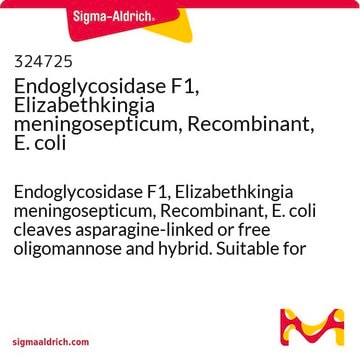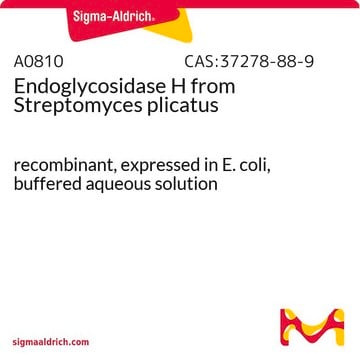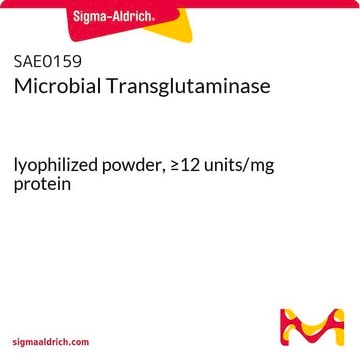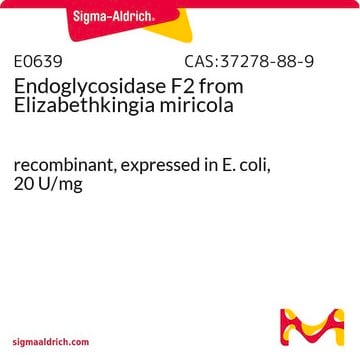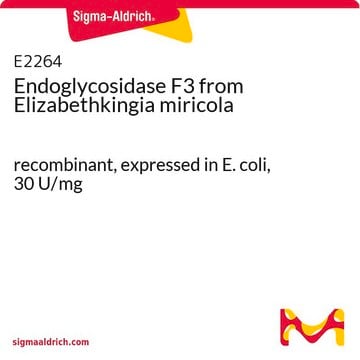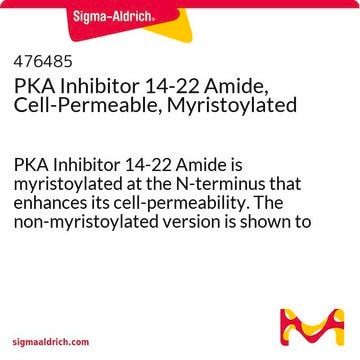324726
Endoglycosidase F2, Elizabethkingia meningosepticum, Recombinant, E. coli
Endoglycosidase F2, Elizabethkingia meningosepticum, Recombinant, E. coli cleaves asparagine-linked or free oligomannose and biantennary complex oligosaccharides. It is not active above pH 6.0.
Synonym(s):
Endo-β-N-acetylglucosaminidase F2, Endo F2
About This Item
Recommended Products
recombinant
expressed in E. coli
Quality Level
conjugate
(N-linked)
form
liquid
specific activity
≥20 units/mg protein
≥5 units/mL
manufacturer/tradename
Calbiochem®
storage condition
do not freeze
foreign activity
N-acetylglucosaminidase, α- and β-galactosidase, α-mannosidase, neuraminidases, proteases, none detected
shipped in
wet ice
storage temp.
2-8°C
General description
Warning
Unit Definition
Physical form
Other Notes
Tarentino, A.L., and Plummer, T.H. 1994. Methods Enzymol. 230, 44.
Tarentino, A.L., et al. 1993. J. Biol. Chem. 268, 9702.
Trimble, R.B., and Tarentino, A.L. 1991. J. Biol. Chem. 266, 1646.
Legal Information
Storage Class Code
10 - Combustible liquids
WGK
WGK 1
Flash Point(F)
Not applicable
Flash Point(C)
Not applicable
Certificates of Analysis (COA)
Search for Certificates of Analysis (COA) by entering the products Lot/Batch Number. Lot and Batch Numbers can be found on a product’s label following the words ‘Lot’ or ‘Batch’.
Already Own This Product?
Find documentation for the products that you have recently purchased in the Document Library.
Articles
Explore strategies for releasing N-linked glycans with PNGase F, PNGase A & native & sequential deglycosylation with endoglycosidases & exoglycosidases.
Explore strategies for releasing N-linked glycans with PNGase F, PNGase A & native & sequential deglycosylation with endoglycosidases & exoglycosidases.
Explore strategies for releasing N-linked glycans with PNGase F, PNGase A & native & sequential deglycosylation with endoglycosidases & exoglycosidases.
Explore strategies for releasing N-linked glycans with PNGase F, PNGase A & native & sequential deglycosylation with endoglycosidases & exoglycosidases.
Our team of scientists has experience in all areas of research including Life Science, Material Science, Chemical Synthesis, Chromatography, Analytical and many others.
Contact Technical Service
